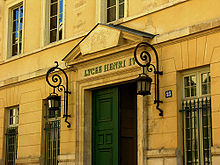user116211
user116211
user116211
user116211
user116211
user116211
user116211
user116211
user116211
user116211
user116211
user116211
user116211
user116211
user116211
user116211
user116211
user116211
user116211
user116211
user116211
user116211
user116211
user116211
user116211
user116211
user116211
user116211
user116211
user116211
user116211
user116211
user116211
user116211
user116211
user116211
user116211
user116211
user116211
user116211
user116211
user116211
user116211
user116211
user116211
user116211
user116211
user116211
user116211
user116211
user116211
user116211
user116211
user116211
user116211
user116211
user116211
user116211
user116211
user116211
user116211
user116211
user116211
user116211
user116211
user116211
user116211
user116211
user116211
user116211
user116211
user116211
user116211
user116211
user116211
user116211
user116211
user116211
user116211
user116211
user116211
user116211
user116211
user116211
user116211
user116211
user116211
user116211
user116211
user116211
user116211
user116211
user116211
user116211
user116211
user116211












